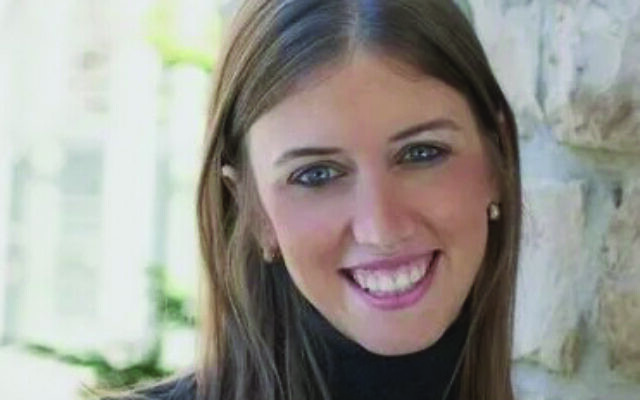Emily Zaghi’s 2021 Rosh Hashanah Message
Read community insights, perspectives, and opportunities seen as we enter into the 5782/ 2021 New Year.
For many of us, the High Holidays are both a time of reflection and a time of great joy, as we come together with our families and friends to mark the new year and strive to be a better version of ourselves. We are surrounded by community in both our joy and our sorrow. In our Jewish tradition, Rosh Hashanah marks the start of a new cycle, and Yom Kippur challenges us to break out of our complacency; it is a rallying cry for us to resist stagnation. At this time, as we grapple with an ongoing global pandemic and pray to be surrounded again by our community, like Sarah and Hannah, we cry out for and celebrate the newness that is upon us and within us.
Yet, all of those things that make the High Holidays special for many, can be particularly difficult for those experiencing medical infertility. Coming back to community and seeing family again after too long, conversations at the dinner table and in the synagogue foyer will often dwell on the new and growing children in our midst. The Torah and Haftarah portions that many of our Temples and synagogues will read on Rosh HaShanah are about the miraculous births of Isaac and Samuel. For those who want children and are unable to have them, these themes of change, new beginnings, and the wonder of new life may feel like a painful reminder of the enforced stagnation of infertility.
One of the series of prayers we say on Rosh HaShanah starts with the words – uvchein, which could be translated as “and then.” We see this theme in Genesis 21 when Sarah asks Abraham to cast out Hagar and Ishmael, and Abraham reluctantly does so with the reassurance from the Lord that Ishmael, like Isaac, will grow up and become the father of a mighty nation. Yet Hagar received no such reassurance and was soon stranded in the wilderness without water and afraid of her son’s imminent death. But her story didn’t end there. She opened her eyes, and then a well was before her. Likewise, when congregations choose to read Genesis 22, the binding of Isaac, for Rosh Hashanah, Abraham is willing to sacrifice his beloved child, and then he sees a ram caught in a thicket. In both cases, another path forward is revealed.
Like Hagar and Abraham, at moments of desolation we must open our eyes to find our “and then.” Infertility creates a disruption in the stories we tell ourselves about our lives, stories that go something like, “grow up, go to school, work, marry, have children, watch them grow,” but infertility does not end that story. There is always an “and then,” another path, another option.
One such option for those experiencing infertility is medical treatment. The process is neither cheap nor easy, but help is available. The Jewish Fertility Foundation (JFF) provides financial assistance, emotional support, and educational programming to Jewish people with medical infertility. JFF offers fertility grants, clinic discounts, and interest-free loans. JFF also has support groups for those experiencing infertility and one-on-one support through the Fertility Buddy program where those who request it will be paired with a veteran of infertility with similar experiences. Emotional support and educational programs are available for all, regardless of religious background.
The High Holidays are a time for reflection, for change, for growth, and for healing. If you or a loved one is struggling with infertility, the Jewish Fertility Foundation is here for you.
Emily Zaghi is national program director of Jewish Fertility Foundation.
- rosh hashanah
- Emily Zaghi
- Jewish Fertility Foundation
- High Holidays
- Reflection
- great joy
- Family
- friends
- New Year
- Community
- Joy
- sorrow. Jewish tradition
- Yom Kippur
- torah
- haftarah
- Temples
- Synagogues
- Infertility
- Genesis 21
- medical treatment
- financial assistance
- emotional support
- educational programming
- Jewish People
- medical infertility
- fertility grants
- clinic discounts
- interest-free loans
- Support groups
- Fertility Buddy program
- religious background




comments